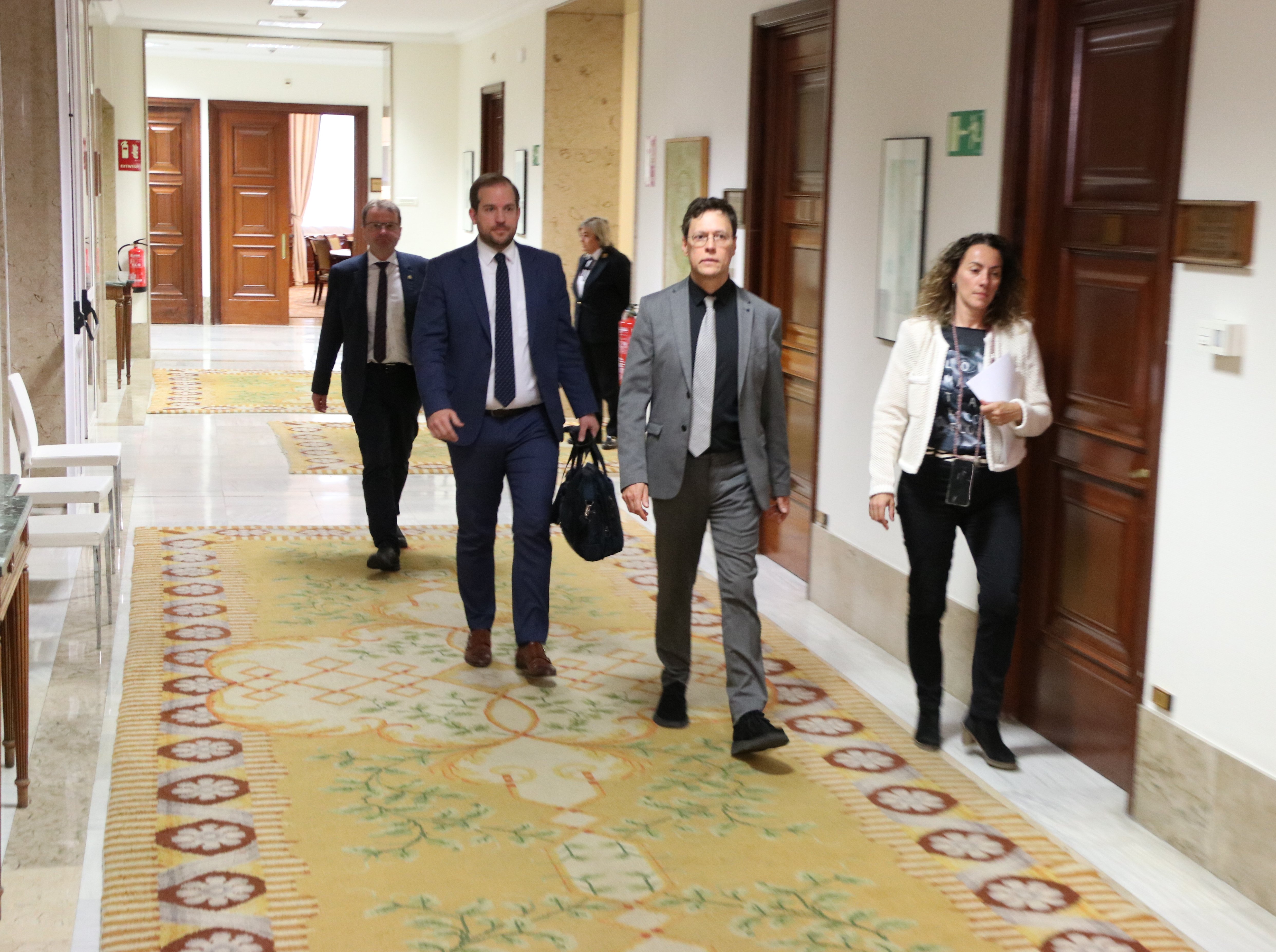A second chance for the Pegasus committee after members of the Spanish Congress failed to show for the planned meeting last Tuesday, making them wait two hours in vain. The representatives of the Spanish lower houses's defence committee will meet with the European delegation investigating mass espionage next Tuesday, March 28th, at half past eleven in the morning, via digital means. The meeting is being held at the request of the ten MEPs who visited Madrid this week seeking information on Pegasus electronic surveillance detected in the Spanish state. During the mission, they were unable to meet either with prime minister Pedro Sánchez or any of his cabinet ministers.
Some of the MEPs left this Tuesday irritated because the Spanish committee for defence, the ministry under which the country's CNI intelligence service operates, had stood them up. The meeting between the Pegasus working group and the members of the defence committees was scheduled for between one and two in the afternoon. The fact is that the meeting coincided with the first day of the debate on far-right Vox's motion of no confidence in Pedro Sánchez and, by regulation, one thing made the other impossible. Although, by the same token, the timetabling of the Vox motion was not decided until well after it was known that the Pegasus committee would be in Madrid that day.
Thus, on the day, the MEPs arrived a few minutes after one o'clock and waited for two hours in the lower house's Constitutional meeting room hoping there would be a recess. When the summoned Spanish parliamentarians failed to arrive, they watched the parliamentary proceedings on the screens and ate a little. Only deputies Míriam Nogueras (Junts), Marta Rosique and Montse Bassa (ERC), Albert Botrán (CUP) and a Basque Nationalist representative escaped from the plenary session. At 3pm they suspended the meeting because at four they were scheduled to summarise their visit in a closing press conference.
Despite the standoff, the president of the committee, the Dutch PP representative Jeroen Lenaers, excused his Spanish counterparts and admitted that they had arrived at Congress "knowing that it would be a difficult and prolonged debate" over Vox's motion. In addition, Lenaers assured that "there was a will" on the part of the defence commission to meet with the working group, which is planning to approve its overall conclusions on April 25th. In fact, in the closing appearance of the mission, the president already advanced that they were negotiating another time to hold the meeting "by digital means". Despite criticizing that the Spanish government did not send senior figures to the meeting, the committee rapporteur, the liberal Sophie In 'T Veld, denied that there was a "boycott desire" on the part of the Spanish authorities.
Nevertheless, rapporteur In 'T Veld made it clear that the Spanish authorities had failed to resolve many of the queries that the MEPs had had when they arrived in Madrid. "We have not received significant information," said In 'T Veld at the press conference. She questioned why the director of the CNI had resigned, if the admitted cases of surveillance over the Catalan politicians had been legally authorised. She also raised doubts about the types of legal permission for electronic surveillance that are possible in Spain, none of which seem to cover the blanket availability to a person's private information which Pegasus provides. The committee also queried the numbers of known espionage cases: former CNI director Paz Esteban had admitted that they had spied on 18 people in pro-independence circles with judicial approval, but the MEPs don't understand what happened to the remaining 43 cases that Citizen Lab documented. The admission of the 18 cases was, it should be noted, made to Congress's Official Secrets committee - not to the Defence committee which will speak to the MEPs on Tuesday.

